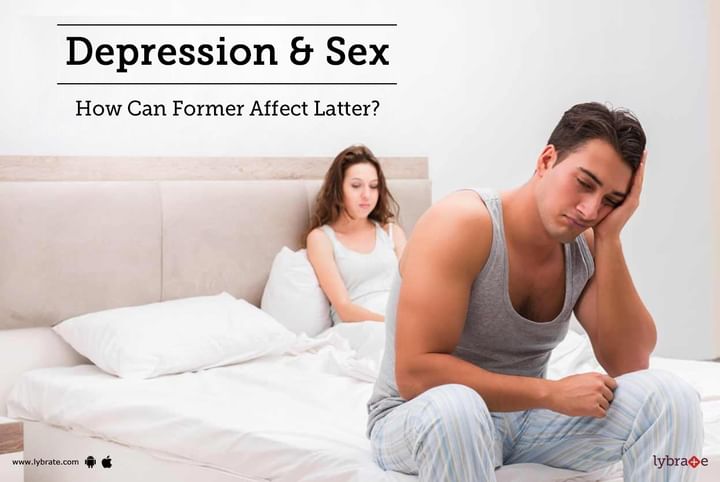Depression & Sex - How Can Former Affect Latter?
Depression and some antidepressants can curb your libido. This has a negative effect on depression as intercourse releases 'happy hormones'. Thus depression and your sex life share a cyclic relationship. The effect of depression on your sex life is a result of both brain functioning and physical changes in the body.
Sex and Performance
From a clinical point of view, however, it's clear that a depressive illness tends to affect all the bodily systems, dislocating them and often slowing them down. This effect is most marked with regard to sleep, which is invariably disrupted. But there can be adverse effects on any activity that requires energy, spontaneity and good co-ordination – and that includes sex. And, sadly, lots of individuals who are depressed often appear to lose interest in sex.
Admittedly, this isn't always the case, and some depressed people manage to maintain normal sex lives – sometimes even finding that making love is the only thing that gives them comfort and reassurance. In men, the general damping down of brain activity causes feelings of tiredness and hopelessness, which may be associated with loss of libido and erection problems. In women, this diminished brain activity tends to be associated with lack of interest in sex and very often with difficulty in reaching orgasm. All these problems tend to disappear when the person gets better. Indeed, renewed interest in sex may be the first sign of recovery.
Here are a few things you can work on if stress or depression is ruining your sex life:
- Break the pattern: Depression often makes a person withdraw from others and cease to enjoy any experience. This becomes a thought pattern that cannot be cured with medication. Talking to a counsellor can help unlearn these thought patterns and help people form new social bonds. As part of the treatment, the patient will need to find and explore new ways of enjoying sex that can strengthen strained relationships. Talk to your partner and if you need you may take help of a sexual therapist.
- Having an open conversation with your partner: It is the key to improving relationships and one's sex life. Talk about your sexual needs and help your partner understand your mental barriers to sex. Find forms of foreplay that appeal to both of you. It is also important for you and your partner to understand that there is no 'standard' to how often you should have sex or how you should feel after it.
- Try to stay away from performance anxiety: Don't let performance anxiety take a toll on your sex life. Studies show that being conscious about their performance in bed leads men to lose their erection, which takes all the pleasure away from intimate moments. Instead of being stressed about your sexual performance, focus on your partner's needs and attend to them for more pleasurable sex life.
- Don't make it seem necessary to have sex even if your partner is tired: If you find that stress due to problems at workplace or financial issues is affecting your partner considerably, then respect his/her decision of saying no to sex. Don't pressurize partner to get intimate just because you want it. Your patience and understanding nature will increase your partner's admiration towards you, in turn leading to more passionate and happier sex life.
- Role of Sexual Therapist / Counselor: Role of a sexual therapist cannot be undermined. If you can find a good sexual counsellor in your city or area, then you may take his/her advice. A good therapist will help you for a better understanding of your issues and explaining them back to you comprehensively.
Also he/she can suggest you a good road map how to take control of your sexual life. Role of a sexual therapist cannot be undermined.



+1.svg)
